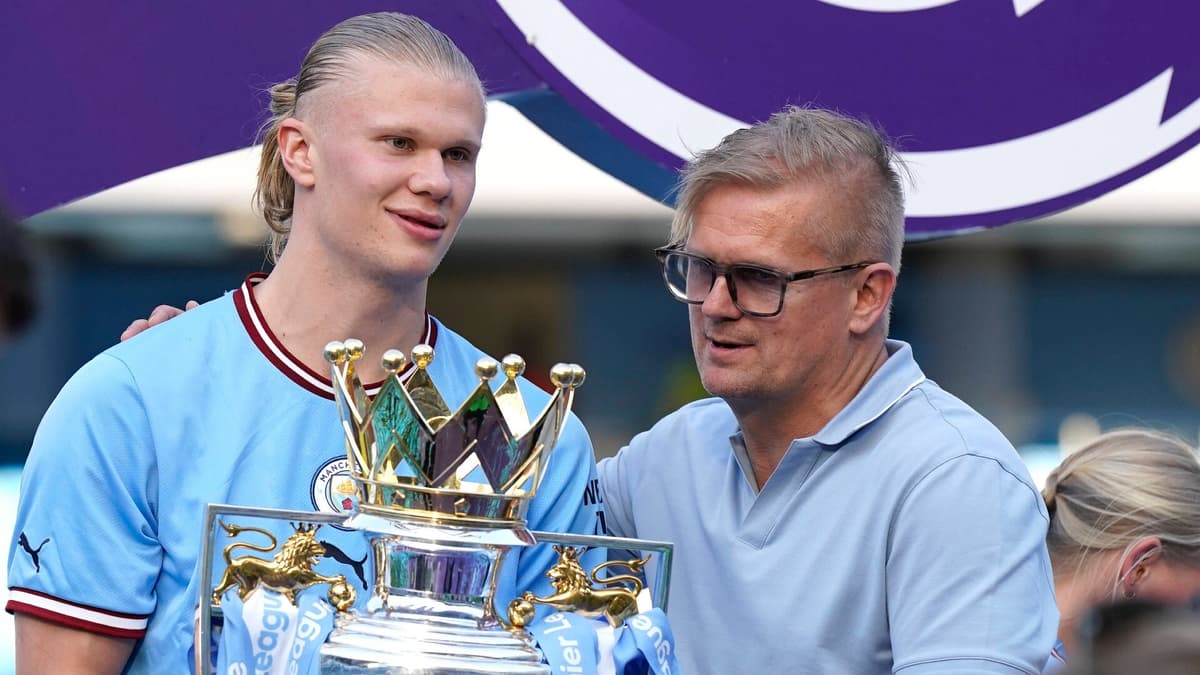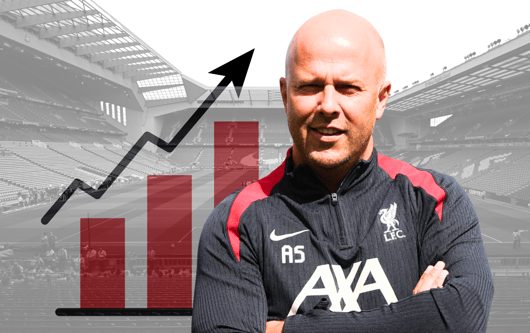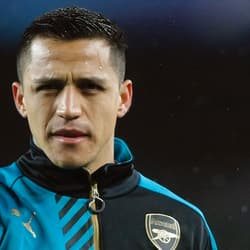-
News
- 22 minutes ago
Like Father, Like Son: Footballers following in their fathers' footsteps is becoming a growing trend

In the pantheon of professional football, dynasties aren't confined to national teams or storied club legacies. They appear on the pitch, generation after generation, as children of ex-players following in the footsteps of their fathers.
There have been 46 fathers and sons to have appeared for Premier League clubs since the league's inception in 1992, a striking indicator that the game's next generation is increasingly shaped not just by raw talent but by inherited legacy.
Perhaps the most famous current example is Erling Haaland, the Norwegian powerhouse currently spearheading Manchester City's attack.
His father, Alf-Inge Haaland, was a rugged Premier League midfielder who amassed over 200 appearances for Nottingham Forest, Leeds United and Manchester City from 1993 to 2003. Erling, still just 25, has already eclipsed his father's achievements, having stormed the English top flight in the 2022-23 season with 52 goals across all competitions and playing a central role in City's historic treble.
Another notable figure is Borussia Monchengladbach's Giovanni Reyna, the American attacking midfielder whose father, Claudio, enjoyed a strong career in the Premier League with Sunderland and Manchester City. Gio's breakthrough came at Borussia Dortmund, but his 2024 loan move to Nottingham Forest brought his story full circle, placing him on English soil just as his father once was.
Similarly, Justin Kluivert, son of Dutch legend Patrick Kluivert, has carved out a respectable career since coming through Ajax's esteemed academy and now finds himself with Bournemouth in the Premier League.
These aren't isolated narratives.
West Ham United's Freddie Potts, son of former Hammers right-back Steve, and Leeds United left-back Gabriel Gudmundsson, whose father Niklas played for Blackburn Rovers in the 1990s, became the latest players to join the list at the start of this season.
Many of the father-son pairings have seen the younger generation reach and remain at either Premier League or Championship level in 2025.
From Watford winger Tom Ince, son of Paul, to new Chelsea star Liam Delap, whose father Rory is remembered for his long throw-ins at Stoke City, this trend signals a broader movement.
Most of these players have graduated from elite academy systems and continue to compete in the upper tiers of English football. The evidence suggests that football's modern ecosystem is not only accommodating these legacy players but perhaps actively favouring them.
There are clear advantages to being the child of a former professional footballer. Name recognition alone can elevate a young player's profile.
Coaches, scouts and club executives are more likely to take a second look at a youth prospect if his surname is already etched into Premier League lore. The attention may not always be positive, but it can accelerate access to opportunities that others must wait years to attain.
"I scout a player on his merits" says Martin Taylor, an experienced scout who's worked for Chelsea, Arsenal and Tottenham Hotspur. "I don't care who his dad was. If he's good enough, he's good enough. But I think there are opportunities given to these kids because of who their fathers are.
"There are a lot of players where the sons try to reach their dads' level, but they can't. Is it the right thing? I don't think it is, because they're not doing the kid any favours."
Financial means also play a crucial role. Wealthy ex-professionals can provide their children with access to private coaching, specialised nutrition plans and even elaborate backyard training facilities that simulate professional environments. This head start can translate into a tactical understanding and physical conditioning that far exceeds peers of the same age.
There is also the intangible benefit of mentorship. The sons of footballers are raised with a unique insight into the demands of the game, both on and off the pitch.
"I know at any given time what he's feeling," says Paul Furlong, the former Chelsea, Birmingham City and Queens Park Rangers striker whose son, Darnell, broke through at QPR and went on to play more than 200 games for West Bromwich Albion in the Premier League and Championship before joining Ipswich Town this summer.
"There can be moments on the pitch where I can see a ball being played into him - I know the feeling. And I know the feeling when things don't go well. I'm definitely able to help him with that and keep him on the straight and narrow. The fact that I played definitely is a good thing to help him on his journey. Even now, we still have conversations."
journey][Paul Furlong on his son Darnell]}
"I try to be there as a father to support," adds Lee Clark, who starred for Newcastle United, Sunderland and Fulham during his playing days and whose youngest son, Bobby, now on loan in the Championship at Derby County, won the League Cup with Liverpool before joining Red Bull Salzburg in 2024.
"You try not to get involved too much but it is difficult. He's my son. I love him so much. If I think things aren't going well for him, I'll try and protect him.
"You do say that you just want to be the father, the parent, and watch from afar. But when things are a little bit difficult, you want to be there and try and help him that little bit more It's a fine line.
"Ultimately, he's got the talent. But he's picked up what the game means, how important it is to people, being in a household that was football-orientated for all of his childhood. I would imagine those type of things can't do any harm and can only help him when he steps out on the pitch to get an understanding of what's at stake."
It could be argued that successful sons of former players benefit greatly from the "Matthew effect". Taking its name from the Parable of the Talents in the biblical Gospel of Matthew and also sometimes referred to as "cumulative advantage", this is the notion that initial advantages tend to lead to greater advantages over time, while disadvantages tend to widen - the rich get richer and the poor get poorer.
But while the road to a career in the game might be less obstructed for these second-generation players than it is for others, it is not entirely without pitfalls. A famous surname can be as much a burden as it is a boon.
Expectations are immediately sky-high.
Every performance is judged not only on its own merit but also against the backdrop of a father's career.
A prime example of the elevated profile and outsized expectations young footballers with famous fathers can face is that of Kai Rooney. Videos of Wayne's 15-year-old son dazzling for Manchester United's youth teams regularly circulate on social media and comparisons to his dad are inescapable.
But when your dad is a former England captain and the all-time leading scorer for the club you represent, that's an absurdly high bar for a young person to attempt to vault.
"In the case of Wayne's lad, I think he handles it all quite well because he's quite bright," says former United youth coach Tony Whelan, who worked with the children of the likes of Ryan Giggs, Nicky Butt and Michael Carrick - as well as Rooney - during his more than three decades as one of the most influential figures at the Carrington academy.
"Wayne would come and watch his lad and stand alone, a long way away.
He'd never scream or shout or anything like that. And you have parents' meetings with them, and you don't speak to them any differently to any other parent. It's down to the personality of the young player concerned and the parents.
"Most of them, in my experience, have dealt with it very well. You're inevitably going to get the odd jibe, the gossip. They must get that. It's inevitable. But all the players who've worked under me who had parents who were footballers have all been really good kids and have coped with it really well. I've had admiration for them. If it was me, I would be thinking, 'Well, Dad, I'd rather go somewhere else, where you're not there and I can just go and get on with it' I'd be thinking about where I could escape to.
"At the outset, there was no pressure," Furlong explains of his son Darnell's early career. We could see no pressure. My wife, my friends that used to come and watch him play could see no pressure. But last Christmas we spoke about that and he said he felt pressure. But the way that he dealt with it was in the correct manner.
"Some people, the pressure can show. With him, you couldn't see it."
One might assume that the biggest leg-up the offspring of former players receive is in their genetics, with the son inheriting the attributes that led the father to a successful career at the top end of the game. But genetic inheritance, it turns out, is not so straightforward. How much aptitude for elite-level football is passed down the generations depends greatly on what type of player the parent was and what type of player the child hopes to become.
"There's not one trait that's been looked at so far that hasn't some genetic association," explains Dr Alex McAuley, a postdoctoral research fellow in the Research for Athlete and Youth Sport Development Lab at Birmingham City University.
"However, there isn't one trait that is 100 per cent genetic, either.
"Height is the big one, at 80 per cent heritable. Physical traits like power and endurance, those are more like 60 to 70 per cent. But when we come to the more psychological traits, those are more like 40 per cent, 30 per cent in some cases. And the science around heritability percentages can change depending on environment.
"From the genetics side, it comes down to your conceptualisation of talent. For example, Peter Crouch, in another nation - say, Spain - he might not have had the typical profile [of a top footballer]. If Peter Crouch's son went in [to an academy], you could say, more likely than not, he'll end up being a similar height. But in a different culture - or if the criteria changed, like it has in England, to try and develop kids more like Phil Foden rather than the next Peter Crouch - that genetic advantage might not be there any more."
Still, looking at the numbers, the trend is undeniable.
Most are academy graduates, having spent their formative years at clubs like Liverpool, Manchester City or United. Indeed, the Anfield club made headlines by winning the 2024 League Cup final with three sons of ex-players in Clark, Jayden Danns and Lewis Koumas. This suggests a pipeline not driven solely by coincidence, but by a deliberate and increasingly effective developmental model.
"I'd guess that if you looked at the representative norms of players who make it versus players who don't, those who make it and have got fathers who played at a high level would probably be over-represented in the pool of talent," says Prof. Adam L. Kelly, a professor of Sport and Exercise at Birmingham City University.
"So there must be something there with regards to why they do make it."
In today's footballing landscape, lineage is becoming a valuable asset.
Clubs understand the advantages of recruiting players who have grown up immersed in the culture and demands of elite competition. While the sport still thrives on discovering raw, unpolished talent in unlikely places, there is growing comfort in investing in players whose foundations are already solid.
What this means for the future is compelling. As football continues to globalise and the competition for academy spots intensifies, expect more sons of ex-professionals to emerge on the scene. Not because of nepotism - or, at least, not only because of nepotism - but because the environment they are raised in uniquely prepares them for the realities of the modern game.
Ultimately, what distinguishes those who succeed is not the familiar name on the back of their shirt but their ability to manage the weight that comes with it.
The most successful of this new generation aren't just honouring their fathers; they are outstripping them and building legacies of their own. Their stories aren't just about continuity. They are about evolution, resilience and the enduring allure of what can be passed down from father to son.
Words by Ryan Baldi.


















